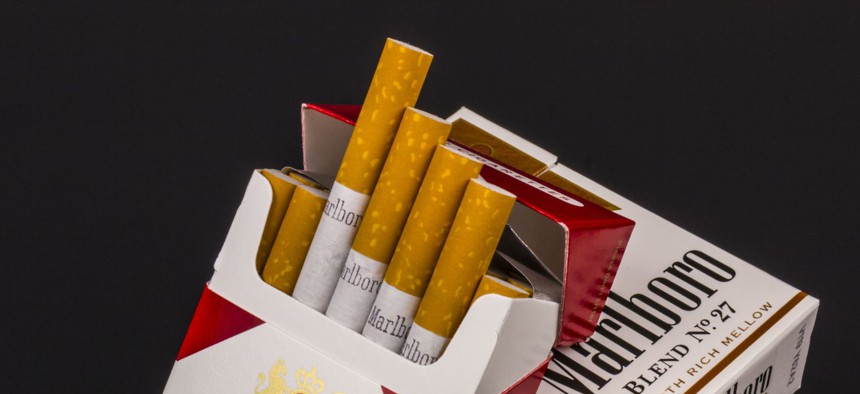The States That Tax Cigarettes at the Highest and Lowest Rates

Shutterstock
The Tax Foundation has new rankings and an interactive tool that look at the taxes states levy on a pack of smokes and changes in state cigarette tax revenue over the years.
Northeast states hold four of the top five spots on a ranking of state tax rates on cigarettes, published by a tax policy research organization earlier this week.
The Tax Foundation ranked states based on their cigarette excise tax rates as of April 1 and also released an interactive tool to show how cigarette tax revenues have changed in U.S. states since the 1950s. As of April, New York had the highest state cigarette tax at $4.35 per 20-pack.
State taxes are levied on top of the $1.0066 federal rate for a pack of 20 cigarettes, notes Morgan Scarboro a policy analyst for the Tax Foundation in a post on the group’s website. She also points out that local taxes are imposed in addition to state taxes in some places—state, county and city taxes add up to $6.16 in Chicago, for instance.

Rounding out the list of states with the five highest cigarette taxes per pack are: Connecticut ($3.90), Rhode Island ($3.75), Massachusetts ($3.51) and Hawaii ($3.20).
States with taxes that are the lowest include: Missouri ($0.17), Virginia ($0.30), Georgia ($0.37), North Dakota ($0.44) and North Carolina ($0.45).
The average state tax rate for a pack of cigarettes is $1.68 per pack, according to the Tax Foundation.
Last November, ballot initiatives failed in Colorado, Missouri and North Dakota that would have imposed higher tobacco taxes. In California, voters approved a ballot measure to raise the state’s cigarette tax by $2 per pack. There’s currently a proposal in Oregon to have voters decide in 2018 on adding $2 to the state’s current $1.32 tax on each pack of smokes.
Those against tobacco taxes spent heavily to defeat the round of ballot measures in 2016, as Stateline reported in January. In California alone, opponents led by Philip Morris and R.J. Reynolds, raised $71.3 million, nearly double the $35.5 million that supporters had.
Scarboro writes that although states sometimes turn to cigarette taxes to help address budget shortfalls, “cigarette tax revenue is declining as fewer Americans smoke, meaning cigarette tax revenue is not a reliable funding source for important policy priorities.”
Sources for the Tax Foundation cigarette tax rankings included state revenue departments and RJ Reynolds. The rankings can be found here. And the interactive revenue tracking too here.
Bill Lucia is a Senior Reporter for Government Executive's Route Fifty and is based in Washington, D.C.
NEXT STORY: Richmond Mayor Calls Council Move an ‘Overreach of Legislative Authority’






